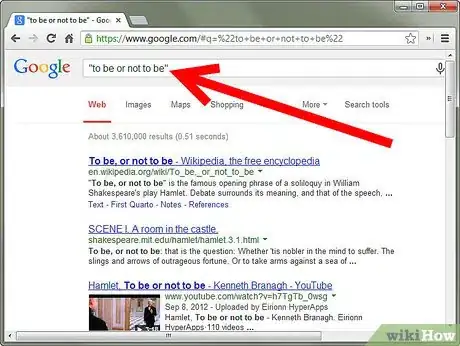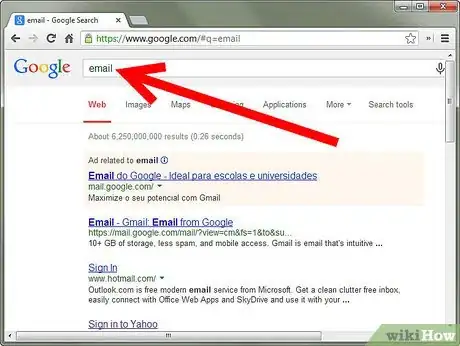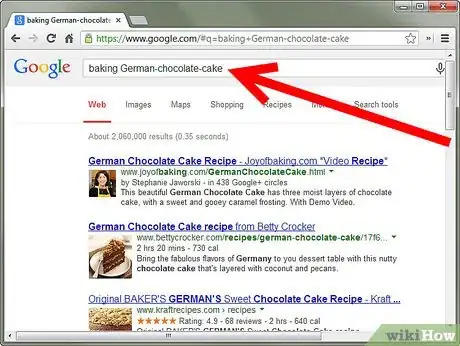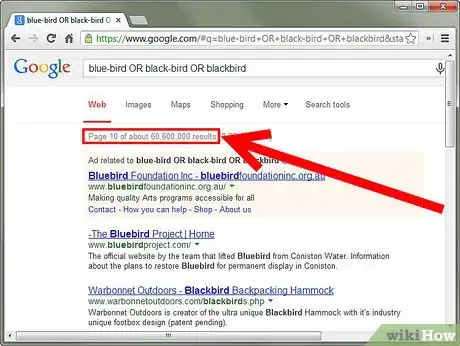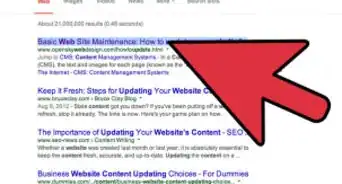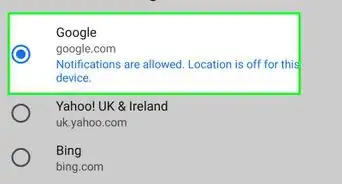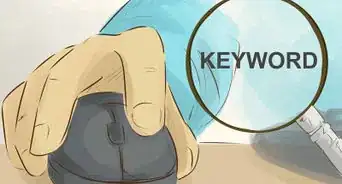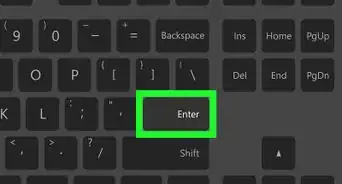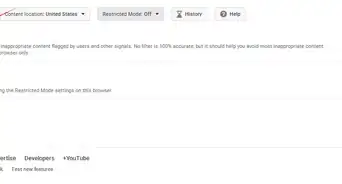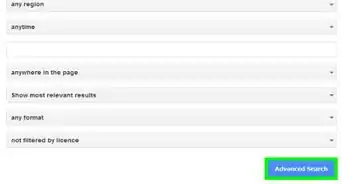X
This article was co-authored by Luigi Oppido. Luigi Oppido is the Owner and Operator of Pleasure Point Computers in Santa Cruz, California. Luigi has over 25 years of experience in general computer repair, data recovery, virus removal, and upgrades. He is also the host of the Computer Man Show! broadcasted on KSQD covering central California for over two years.
This article has been viewed 54,634 times.
This describes some common techniques about how to search for multiple phrases, with possible logical expressions, in various search engines. Links to vendor specific search expressions could provide more precise search capabilities.
Steps
-
1Use quotation marks. If you are looking for an exact phrase such as "to be or not be. That is the question" put the phrase in quotation marks. This will tell the search engine you want to search for this phrase being used verbatim around the web.
-
2Choose words. Think about words & phrases that can uniquely describe what you're searching. Bear in mind that some search engines automatically match multiple/conjugated forms of some words, while others require an exact match, even for singular or plural words. (Example: In 2005, AOL, A9, Google & Netscape by default also looked for some singular nouns or conjugated verbs "prevent"/ "preventing" and matched "e-mail" to "email"; whereas MSN Search & Yahoo required exact matches to words specified as spelled.)Advertisement
-
3Connect words. Enter connected phrases with hyphens or quotes as a single search-item, such as "baking German-chocolate-cake" or "secret-revelation robe": connecting separate words can pinpoint the search, whereas, putting many separate words would begin matching millions of webpages containing only a few of all the words (especially after more than 3 words/items are specified).
-
4Connect phrases. Use logical connectors or parentheses for more complex searches such as: "blue-bird OR black-bird OR blackbird" to match any of several similar items, and find a blackbird as one or two words "black bird" etc.
-
5Sub-search. Be prepared to "search within resulting webpages" to further pinpoint information that might be buried hundreds or thousands of pages down the list of matching pages.
-
6Get details. Consult the advanced-search help about whichever search engine is being used. Many search engines treat hyphenated words as equivalent to a phrase in quotation marks: To-be-or-not-to-be.
Advertisement
Expert Q&A
Did you know you can get expert answers for this article?
Unlock expert answers by supporting wikiHow
-
QuestionHow do I find a specific word on a webpage?
 Luigi OppidoLuigi Oppido is the Owner and Operator of Pleasure Point Computers in Santa Cruz, California. Luigi has over 25 years of experience in general computer repair, data recovery, virus removal, and upgrades. He is also the host of the Computer Man Show! broadcasted on KSQD covering central California for over two years.
Luigi OppidoLuigi Oppido is the Owner and Operator of Pleasure Point Computers in Santa Cruz, California. Luigi has over 25 years of experience in general computer repair, data recovery, virus removal, and upgrades. He is also the host of the Computer Man Show! broadcasted on KSQD covering central California for over two years.
Computer & Tech Specialist
Advertisement
Warnings
- Particular search engines can change their word-search strategy at any time, without notice. Be prepared for changes in how phrases are matched.⧼thumbs_response⧽
- Some search engines contain very outdated webpages, many of which may no longer exist, because their host websites have been discontinued. If possible, use the remaining "ghost" webpage from the particular search engine cache to see the remaining information before it is erased from that search engine.⧼thumbs_response⧽
Advertisement
About This Article
Advertisement
